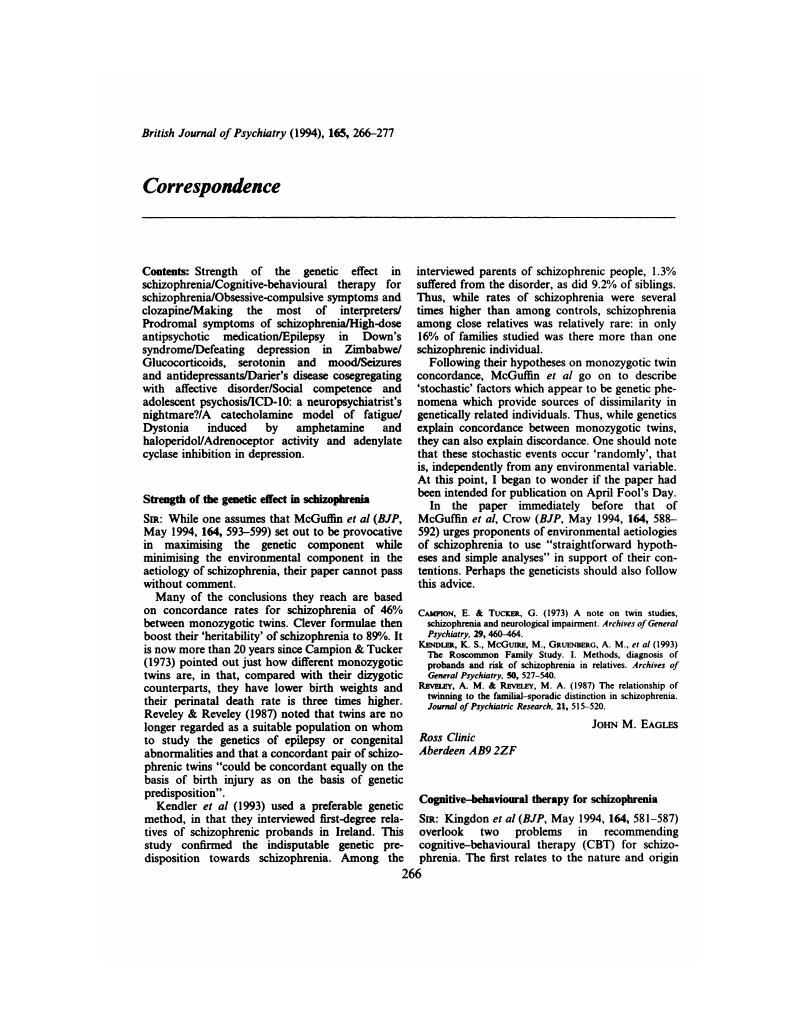Crossref Citations
This article has been cited by the following publications. This list is generated based on data provided by Crossref.
Norman, Ross MG
and
Townsend, Laurel A
1999.
Cognitive-Behavioural Therapy for Psychosis: A Status Report.
The Canadian Journal of Psychiatry,
Vol. 44,
Issue. 3,
p.
245.




eLetters
No eLetters have been published for this article.